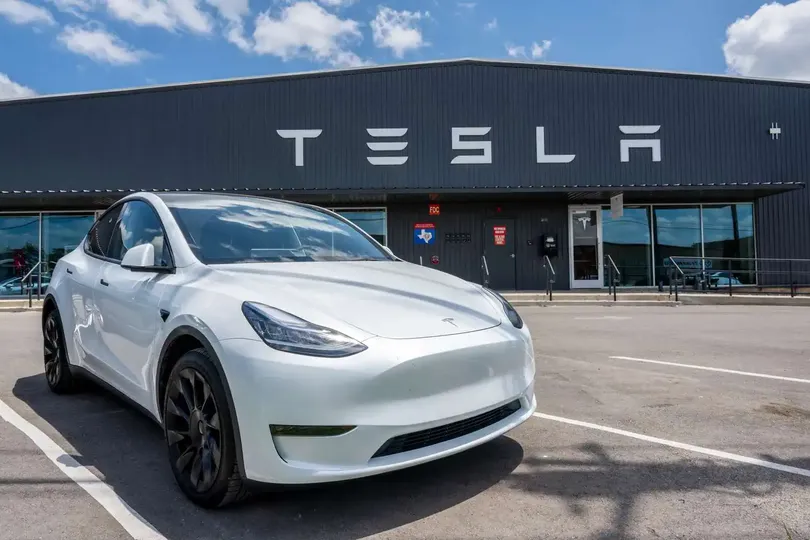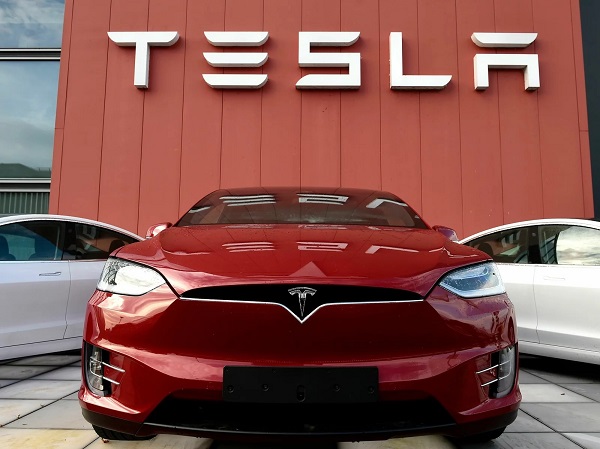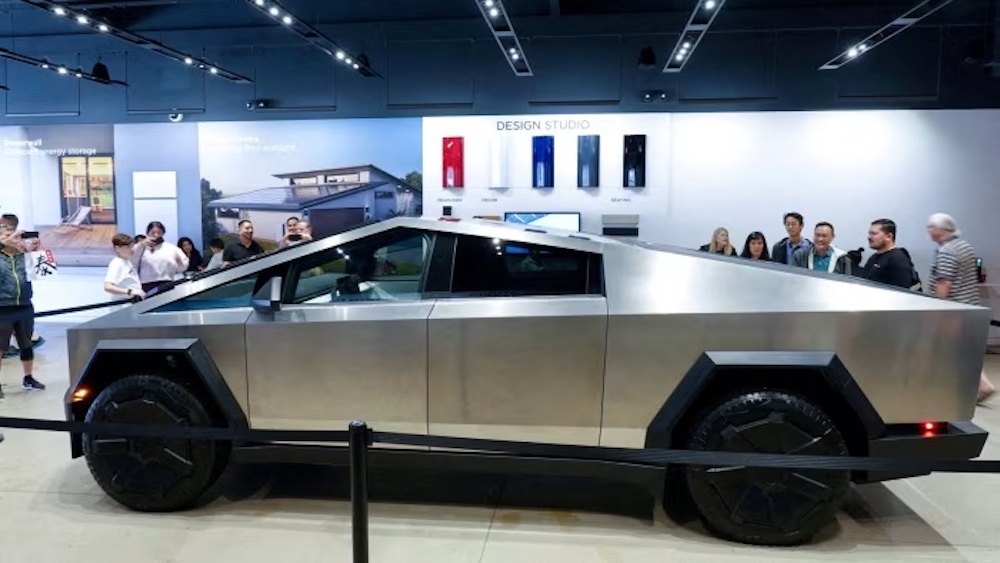The relationship between Elon Musk and Donald Trump has achieved something that Tesla Inc.’s (NASDAQ: TSLA) position in the global electric vehicle (EV) market could not: pushing Tesla’s market capitalization beyond $1 trillion. While the connection between the two has sparked curiosity, it remains unclear why Tesla’s stock surged 20% immediately after the election. The stock continued to rise throughout the week, and by the end of Friday, it had increased 25% year-to-date, matching the S&P 500‘s performance.
Here's ads banner inside a post
A Significant Turnaround After a Challenging Year
This sharp increase marks a dramatic shift following what seemed like a difficult year for Tesla. Earlier in the year, Tesla’s stock experienced significant declines, especially in May, due to weaker-than-expected sales figures and growing concerns about competition from EV manufacturers in China. Despite Tesla’s strong brand and reputation for innovation, the company was not immune to the effects of market pressures and shifting consumer preferences. Even the release of Tesla’s third-quarter financial report, which showed positive growth, only led to a modest rally in Tesla’s stock price.
In the third quarter, Tesla produced approximately 470,000 vehicles and delivered about 463,000, maintaining its status as a leader in EV production. However, revenue growth was relatively muted. Tesla’s total revenue increased 8%, reaching $25.2 billion, while auto revenue – the core of its business – grew only 2% to $20 billion. Meanwhile, earnings per share (EPS) rose 17% to $0.72. These figures indicated a stable, if not groundbreaking, performance, which would usually not be enough to propel a stock to new highs.
Tesla’s ability to recover from these mid-year challenges and achieve record-breaking market performance is noteworthy, particularly considering the external pressures from competitors and global market conditions.
Here's ads banner inside a post
Market Share Decline and the Pressure of Chinese Competition
Tesla’s EV market share in the United States slipped below 50% for the first time this year, a symbolic drop that sparked discussions about the sustainability of its dominance. The United States has been Tesla’s primary market, but this decline suggests increasing competition from both established automakers and new players entering the EV space.
The competitive pressure is even more intense in China, the largest EV market globally. Chinese manufacturers, especially BYD, have seen sharp increases in sales and have been aggressive in their pursuit of market share. BYD, backed by government incentives and significant R&D investments, has emerged as a formidable competitor to Tesla, not only in China but potentially worldwide. Tesla’s sales in China remain strong, but the overall market is becoming more fragmented, with local brands gaining consumer trust and loyalty.
Additionally, the global EV market outside of China has shown signs of slowing down. In Europe and other key markets, economic uncertainty, supply chain disruptions, and fluctuating demand have tempered the growth rates seen in previous years. These factors collectively pose challenges for Tesla as it seeks to expand its reach and maintain its leadership in the EV sector.
Here's ads banner inside a post
Cybercab Robotaxi and the Vision for Full Self-Driving
On October 10, Tesla introduced its first robotaxi concept, the Cybercab, which represents a major step forward in Elon Musk’s vision for autonomous vehicles. The Cybercab is designed to operate without human intervention, and its success hinges on the achievement of full self-driving capabilities. However, the timeline for production remains uncertain, as developing a truly autonomous vehicle involves overcoming substantial technological and regulatory challenges.
Tesla’s market capitalization is increasingly tied to its potential to lead the autonomous driving industry through AI and advanced technology. Tesla’s full self-driving mode (FSD) has been in development for years and has garnered both excitement and skepticism. Elon Musk has consistently promoted the idea that Tesla will eventually deliver a fully autonomous vehicle, and the company has made significant strides. However, achieving full autonomy involves more than technology – it also requires navigating a complex regulatory landscape.
The CEO of Nvidia, Jensen Huang, recently commented that “Tesla is far ahead in self-driving car technology,” affirming the company’s technological leadership. Nvidia, a key player in AI and automotive technology, supplies hardware and software solutions for advanced driver assistance systems. Huang’s endorsement reflects confidence in Tesla’s technological edge. Yet, the process of obtaining regulatory approval for fully autonomous vehicles remains challenging. Approval may have to be sought on a state-by-state basis within the U.S., with different states imposing varying requirements for autonomous vehicle operations.
The Impact of the Presidential Election on Tesla’s Stock Performance
One of the most intriguing questions is why Tesla’s stock surged immediately after the presidential election, which resulted in Donald Trump’s return to the White House. Could this political shift benefit Tesla? Some investors speculate that a Trump administration might be more supportive of innovation, technology, and deregulation, potentially creating a favorable environment for companies like Tesla. For example, there could be new policies or incentives aimed at encouraging the adoption of EVs or reducing regulatory hurdles for autonomous vehicles.
However, these are speculative projections, and there is no concrete evidence to suggest that the government will replace its entire gasoline-powered fleet with Tesla vehicles. Still, investors appear to be betting on the possibility of a more pro-business administration that could ease certain restrictions or provide additional support to the tech and automotive sectors.
The surge in Tesla’s stock reflects not only optimism about the company’s future but also a broader trend among investors who are increasingly drawn to assets perceived as forward-looking or disruptive. Tesla, under Elon Musk’s leadership, embodies the image of a pioneering company pushing the boundaries of technology, from clean energy to AI and robotics.
Tesla’s Role as More Than an Electric Vehicle Manufacturer
Tesla has evolved beyond the role of a conventional car manufacturer. Under Elon Musk, the company has positioned itself as a leader in technological innovation and as a brand that symbolizes the future. Tesla’s focus on renewable energy, autonomous driving, and AI integration has elevated its reputation and drawn a unique base of loyal investors who see Tesla as a catalyst for transformative change.
By leveraging its brand and its strong leadership in the EV space, Tesla has built a significant following among individual and institutional investors alike. For many, Tesla represents not only an investment in a company but also a stake in the future of transportation, energy, and automation.
Tesla’s ambitious plan to achieve full autonomy and its continuous development of cutting-edge technology make it a unique player in the market. Elon Musk’s leadership and vision for a fully autonomous, AI-powered future have kept Tesla at the forefront of the EV and technology industries, even as challenges mount. The introduction of the Cybercab and Musk’s promises of a completely autonomous fleet further underscore Tesla’s desire to push the envelope.
What’s next!
The recent developments in Tesla’s stock, fueled by a complex combination of political events, market dynamics, and Musk’s unrelenting drive for innovation, have brought the company to new heights. Despite facing challenges in the form of intensified competition, regulatory hurdles, and uncertain economic conditions, Tesla continues to attract investor confidence. The post-election stock surge underscores the perception that Tesla is a unique entity poised to benefit from a favorable political environment, advancements in AI, and the global shift toward sustainable energy.
Tesla’s journey from an ambitious startup to a trillion-dollar powerhouse reflects both its successes and the growing influence of technology companies in shaping the future. With the evolving landscape of EVs and autonomous vehicles, Tesla’s role as a leader in this space remains both inspirational and controversial. Whether Tesla can sustain this momentum and fulfill Musk’s vision of a fully autonomous world is yet to be seen, but the company’s impact on technology, transportation, and society is undeniable.

